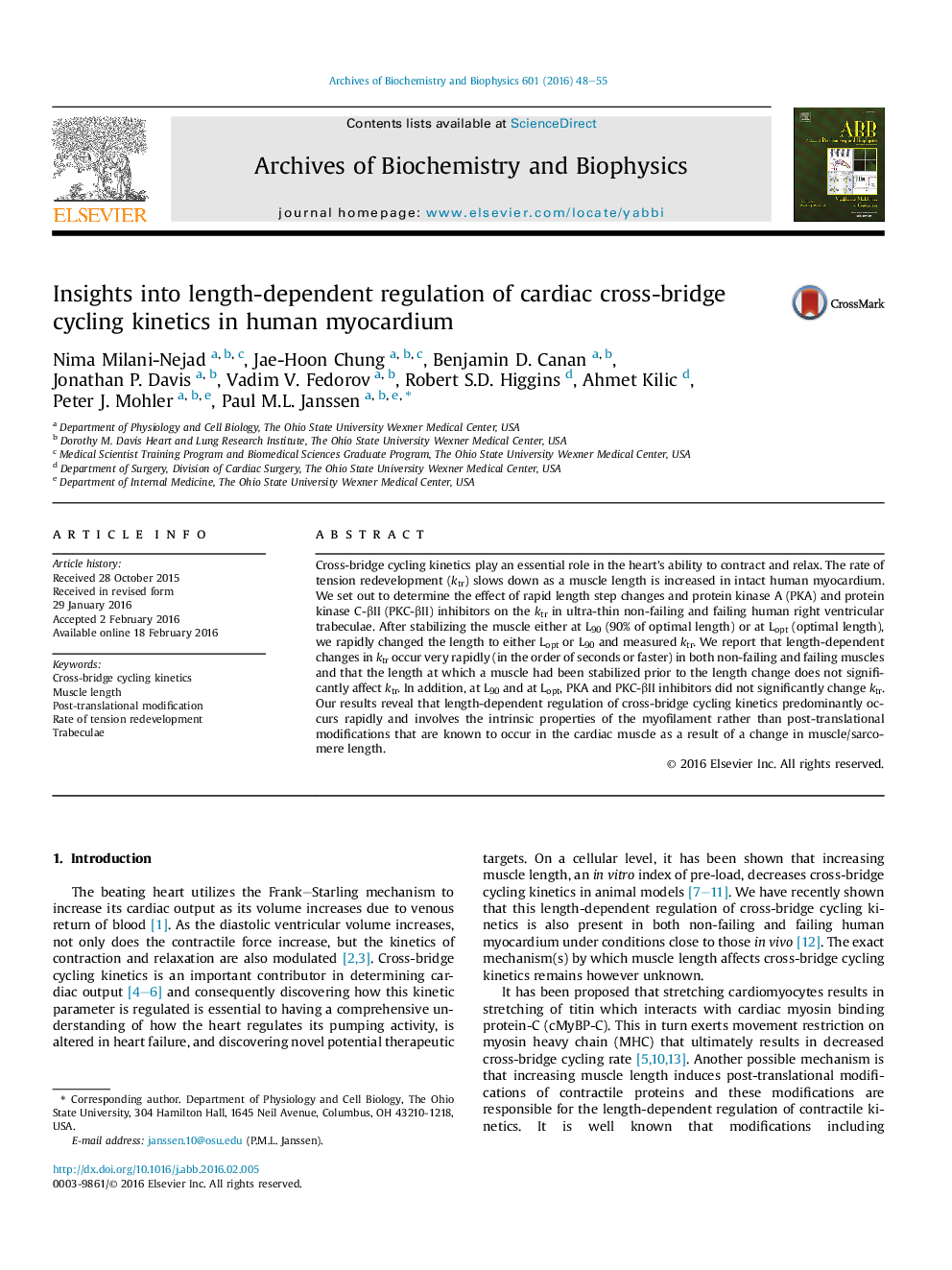| Article ID | Journal | Published Year | Pages | File Type |
|---|---|---|---|---|
| 8289294 | Archives of Biochemistry and Biophysics | 2016 | 8 Pages |
Abstract
Cross-bridge cycling kinetics play an essential role in the heart's ability to contract and relax. The rate of tension redevelopment (ktr) slows down as a muscle length is increased in intact human myocardium. We set out to determine the effect of rapid length step changes and protein kinase A (PKA) and protein kinase C-βII (PKC-βII) inhibitors on the ktr in ultra-thin non-failing and failing human right ventricular trabeculae. After stabilizing the muscle either at L90 (90% of optimal length) or at Lopt (optimal length), we rapidly changed the length to either Lopt or L90 and measured ktr. We report that length-dependent changes in ktr occur very rapidly (in the order of seconds or faster) in both non-failing and failing muscles and that the length at which a muscle had been stabilized prior to the length change does not significantly affect ktr. In addition, at L90 and at Lopt, PKA and PKC-βII inhibitors did not significantly change ktr. Our results reveal that length-dependent regulation of cross-bridge cycling kinetics predominantly occurs rapidly and involves the intrinsic properties of the myofilament rather than post-translational modifications that are known to occur in the cardiac muscle as a result of a change in muscle/sarcomere length.
Related Topics
Life Sciences
Biochemistry, Genetics and Molecular Biology
Biochemistry
Authors
Nima Milani-Nejad, Jae-Hoon Chung, Benjamin D. Canan, Jonathan P. Davis, Vadim V. Fedorov, Robert S.D. Higgins, Ahmet Kilic, Peter J. Mohler, Paul M.L. Janssen,
